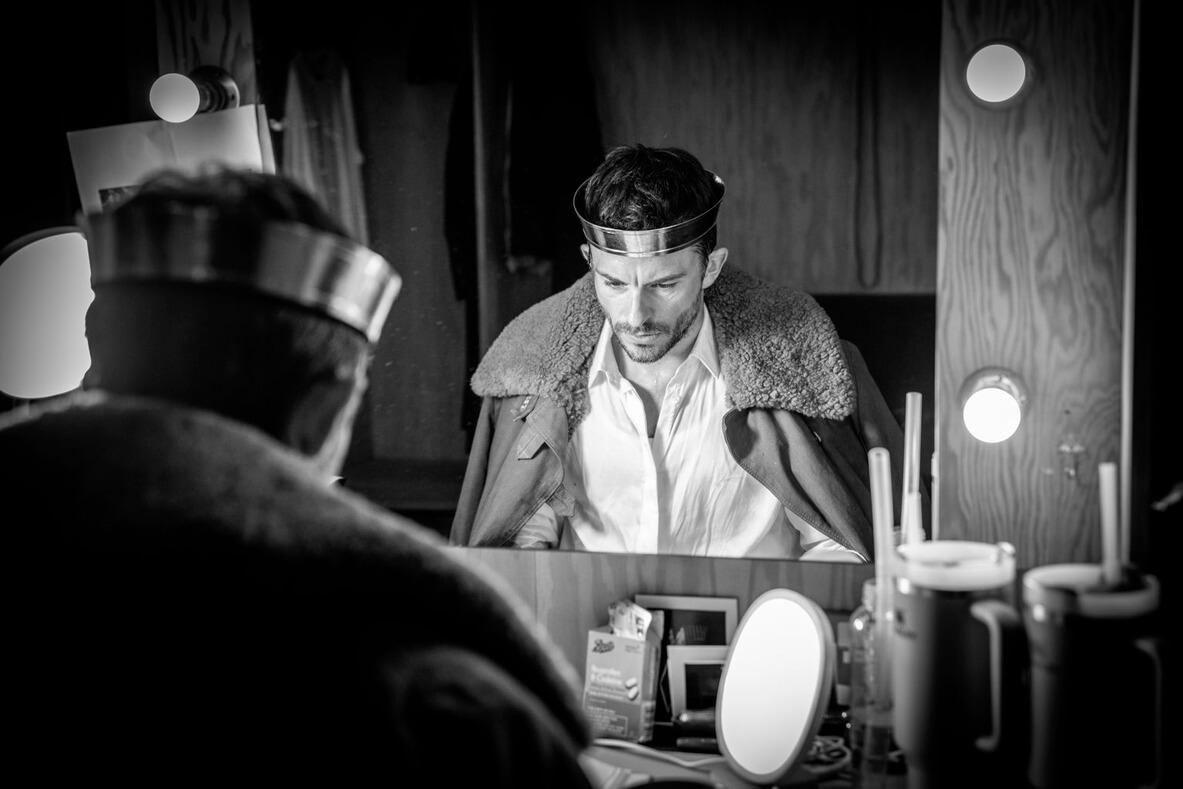There are two strands to the evening, the first is the history lesson in which important men and women reiterate facts to other characters who would probably already know them. This can feel slightly stilted but is essential for someone like me who only has a basic knowledge of the play’s context. Occasionally tiresome, these episodes none the less provide an efficient crash course in pre-partition politics.
The second strand and by far the most engaging is the story of Dinesh Gupta and his family, beginning with his time as a restless, idealistic teenager, dramatising his radicalisation by Subhash Chandra Bose and a former detainee, Bimala, who has been tortured with her husband, and climaxing with Dinesh’s assassination of a British official and subsequent incarceration.
Throughout Dinesh and his family are portrayed with enormous warmth and humanity, he is no plaster saint, as beautifully played Shubham Saraf our central character is by turns heroic, naive, reckless and obstinate. And his relationship with his long suffering family is both loving and fractious.
The play also never shies away from the knotty question of whether he’s a freedom fighter or a terrorist. We discover that not everyone in the wider community is supportive of violence against the British. At these points it’s very interesting to have Dinesh’s action sandwiched between scenes of great leaders like Ghandi and Jawaharlal Nehru debating the best methods of dissent.
Gupta also doesn’t resort to portraying the British as three dimensional villains and is pretty even handed in representing colonial atrocities. In a particularly powerful scene in which an army officer outlines horrific torture techniques he’s also allowed to reveal that the worst are based on traditional methods used by Indian’s themselves.
I was particularly intrigued by the Indian revolutionaries affinity with Irish insurgents, themselves waging a war against British occupation during this period. The Indian’s read and study accounts from Ireland and even buy arms from them. To flesh out this parallel Dinesh encounters Irish characters amongst his oppressors. One is a monstrous, loyalist, law-enforcement officer, the other is a compassionate prison warden.
Director Pooja Ghai pulls all these strands together into an engaging production which draws on the skills of a fine ensemble of actors.
The production is staged by candlelight in the Globe’s extremely uncomfortable indoor replica of a Jacobean playhouse but if, like me, you know little about this shameful period of British colonisation and the rebels who fought against it, you’ll find this an educational and deeply effecting evening.

 To mark the 70th anniversary of India’s independence the Globe theatre have commissioned playwright Tanika Gupta to dramatise key events in the lead up to the partition of what was formerly British India. As a central focus Gupta adapts her family history concerning her grandfather’s brother Dinesh, a Bengali revolutionary (or terrorist and would-be martyr depending on your perspective) drawing upon his letters written during imprisonment.
To mark the 70th anniversary of India’s independence the Globe theatre have commissioned playwright Tanika Gupta to dramatise key events in the lead up to the partition of what was formerly British India. As a central focus Gupta adapts her family history concerning her grandfather’s brother Dinesh, a Bengali revolutionary (or terrorist and would-be martyr depending on your perspective) drawing upon his letters written during imprisonment.


 I'd heard conflicting things about this show, most of the reviews have been glowing but the New York Times critic and a few of my friends had been less enthusiastic.
I'd heard conflicting things about this show, most of the reviews have been glowing but the New York Times critic and a few of my friends had been less enthusiastic.